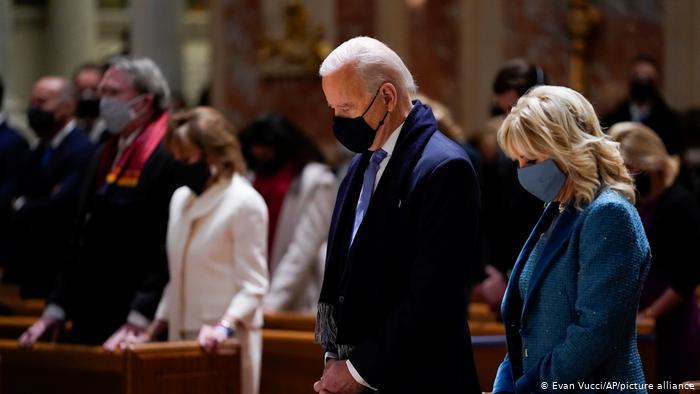Blog Post
Joe Biden wants to make America the world’s abortion provider
This comes as no surprise, but Joe Biden–the “moderate” Democratic candidate–is going far beyond previous presidents in seeking to promote abortion not only at home but abroad. Check out this summary from C-Fam, which is second to none in carefully tracking international developments on life and family issues:
U.S. President Joe Biden has been in office less than half a year, but he is already on course to be the most pro-abortion president in U.S. history. A recent report from C-Fam, publisher of the Friday Fax, details how in Biden’s first hundred days in office, he has worked to reposition the U.S. toward becoming the world’s foremost abortion provider.
In his first weeks in office, Biden rescinded the Mexico City Policy, expanded and renamed under former president Donald Trump as “Protecting Life in Global Health Assistance.” As he signed executive orders and spoke at press conferences, Biden stressed that he was only reversing the “damage” done by the previous administration, and that his actions were only reasserting an earlier status quo.
However, Biden has gone far beyond simply undoing Trump’s pro-life legacy, and exceeded his pro-abortion Democratic predecessor Barack Obama in a crucial way. When the U.S. faced the UN’s Universal Periodic Review, in which it heard recommendations on fulfilling human rights by its fellow UN member nations, several countries urged the U.S. to remove funding restrictions on overseas abortions, especially in crisis situations. In both of the U.S.’s prior reviews, the Obama administration designated these recommendations as “noted” rather than “supported.” Biden “supported” the pro-abortion recommendations in the current cycle.
Directly funding overseas abortions would violate the Helms Amendment which has been attached to the foreign assistance appropriation law since 1973, and which would require an act of Congress to repeal. However, there remains the threat that Helms could be redefined by the Biden administration to include exceptions in grant awards, something Obama had quietly attempted to do but did not carry through when Congress was alerted to it.
Biden issued an executive action restoring funding to the United Nations Population Fund. He also instructed the U.S. Agency for International Development to “ensure that adequate funds are being directed to support women’s health needs globally, including sexual and reproductive health and reproductive rights.”
In his first 100 days Biden also withdrew the U.S. from the Geneva Consensus Declaration, in which the U.S., along with 34 other countries, reaffirmed that there is no international human right to abortion, saying the declaration is “not consistent with our current Administration’s policies.”
In public statements in international forums, as well as behind the scenes during multilateral negotiations, Biden appointees have spoken out in favor of “sexual and reproductive health and rights,” a concept that has never been accepted by consensus in the UN General Assembly, but which is understood by its proponents as including a right to abortion and other controversial elements.
The Biden administration further promised to elevate “sexual and reproductive rights” in the annual human rights reports on other countries issued by the State Department, after this was discontinued under Trump.
Biden and Vice President Kamala Harris have also committed to supporting a law codifying the Supreme Court decision Roe v. Wade which legalized abortion across the U.S. if Congress were to pass it. Before the 2020 election, a pro-abortion coalition issued a “blueprint” of policies and laws they wanted the incoming administration to execute. To the extent that the endorsers of that list have graded Biden’s performance thus far, it has largely been positive, and remains optimistic.








